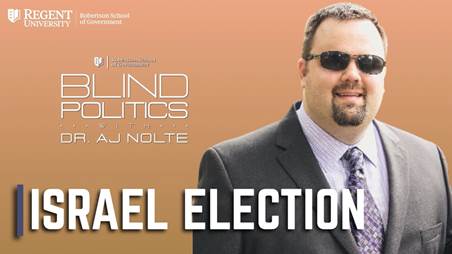Christian Worldview: God is in Public School, Too
Editor's Note: The views and opinions expressed in this article are those of the author and do not necessarily reflect the official policy or position of Regent University, its faculty, administration, or affiliates.
By Ashley A. R. Rombs, Ph.D.
“We need God back in our schools.” This statement often resonates with Christians. In 1962, the Supreme Court did indeed rule to remove prayer and Bible reading from schools (Engel v. Vitale, 1962). However, the above statement invites us to reflect on our Christian worldview and how it applies to Christians in public schools. My husband and I have three daughters who have experienced a mix of public, private co-op, and home education. Currently, they attend public school, where Christianity manifests in word, deed, and through the presence of the Holy Spirit.
God remains with Christian educators and students at all times; He does not leave them at the school building’s door each morning. As 1 Corinthians 6:19 (ESV) says, “Or do you not know that your body is a temple of the Holy Spirit within you, whom you have from God? You are not your own…” Christians can find encouragement knowing that the Holy Spirit guides them throughout the day. We saw this in action when our eldest daughter was in kindergarten. Through a mutual friend, we learned that her teacher was a Christian. One day, our daughter proudly shared that she used the morning moment of silence to pray. She knew this was an option because her teacher skillfully shared this information with the class. To paraphrase our five-year-old, “Mrs. G said you can do nothing, you can pray, you can think happy thoughts for the day, or think about how you can make someone else feel good today with kind words or deeds.[BC1] ”. Knowing that teachers like Mrs. G are in public schools encourages Christian parents and reminds us that there are ways to share faith in that setting.
Christianity sometimes finds visible expression in public schools. Many schools near Regent University offer WyldLife, YoungLife, and Good News Clubs to students. Typically, a teacher sponsors these clubs, or an outside organization can apply to host a non-school-affiliated club on school grounds after hours. These clubs offer Christian students a chance to reach out to non-Christian friends who might be open to attending a club, even if they hesitate to join a youth group or church service. This past summer, we watched more than 100 teens from two local public high schools board double-decker buses for a week at YoungLife camp. There, they heard the gospel and deepened friendships. Upon returning, the YoungLife leaders immediately reconnected with them at a group coffee meet-up. The leader now disciples the interested teens. This is a beautiful example of the Great Commission from Matthew 28:18-20 being fulfilled in small—and sometimes significant—ways in our schools.
Whether quietly or aloud, Christians must witness and glorify God in their vocation (Plantinga, 2002). Abraham Kuyper said, “Wherever man may stand, whatever he may do, to whatever he may apply his hand, in agriculture, in commerce, and in industry, or his mind, in the world of art, and science, he is, in whatsoever it may be, constantly standing before the face of his God, he is employed in the service of his God, he has strictly to obey his God, and above all, he has to aim at the glory of his God” (1931, p.53). A teacher’s job is a vocation and a calling (Plantinga, 2002). The same applies to administrators, custodians, office staff, athletic trainers, and anyone else in the building. Students may not fully understand the concept, but their time at school is part of their vocation and calling. Children are meant to learn and be part of a community, whether in public school, private school, or at home.
Regarding a Christian worldview toward public school, I recall something a professor said during my graduate studies. The course was aptly named Historical and Philosophical Foundations of Education. To paraphrase, the professor said, “Everyone has a philosophy of life, or worldview, even if they do not know it. It shows up in decisions, actions, and behavior. You can say you are an idealist, but if your actions show that you are a realist, that is the philosophy you are living out.” Since that course, I have regularly reflected on what I believe about God and the Bible and how those beliefs shape my behavior and mindset. Deepening my understanding of my Christian worldview and life philosophy has influenced every area of my life. So, the next time you scroll through social media and see a meme that says something like, “Dear Concerned Student, I’m not allowed in schools. —God,” remind yourself that God is everywhere, and the Holy Spirit dwells within believers (Jeremiah 23:23-24). [BC2] Take heart—God does not abandon His children at the schoolhouse door.
Bio: Ashley Rombs, Ph.D., is a wife to Jason and mom to Teagan, Hadley, and Emery. She teaches graduate and post-graduate education at Regent University, where she earned her doctorate. With an M.Ed. from Liberty University and a B.A. magna cum laude double major in History and Theatre & Dance from Old Dominion, Ashley blends a love for academia with a passion for sharing the gospel. A Canadian by birth, she now enjoys the sunny southeastern U.S., and is active in her PCA church community, dedicated to Bible literacy.
References
Engel v. Vitale, 370 U.S. 421 (1962). https://www.uscourts.gov/educational-resources/educational-activities/facts-and-case-summary-engel-v-vitale
School-sponsored prayer in public schools is unconstitutional.
English Standard Bible. (2001). ESV Online. https://esv.literalword.com/
Kuyper, A. (1931). Lectures on Calvinism. Eerdmans.
Plantinga, C. (2002). Engaging God’s world: A Christian vision of faith, learning, and living. Eerdmans.






